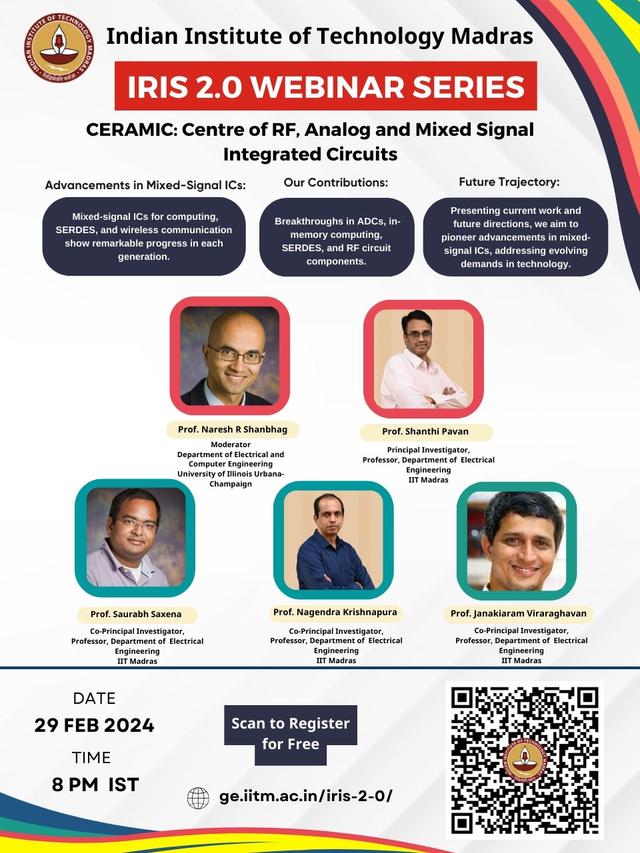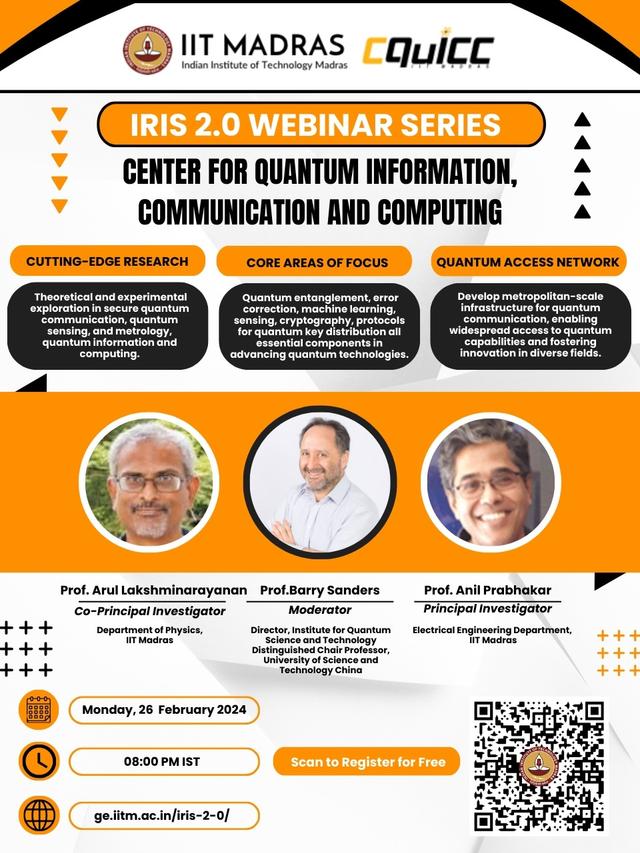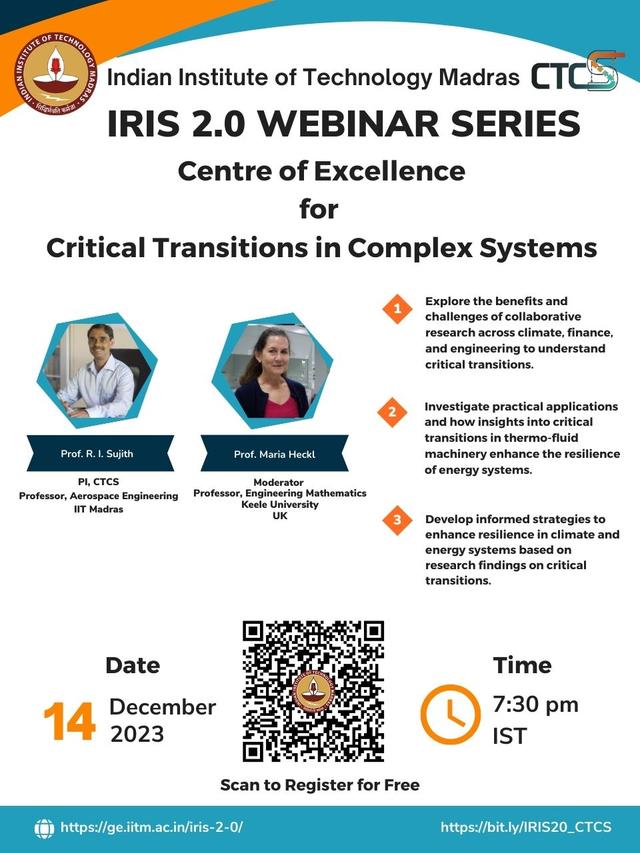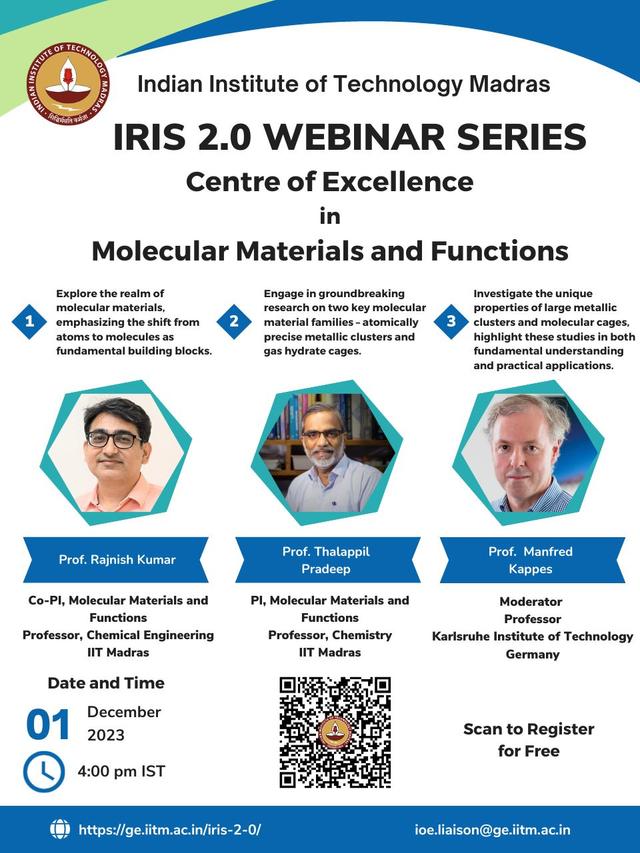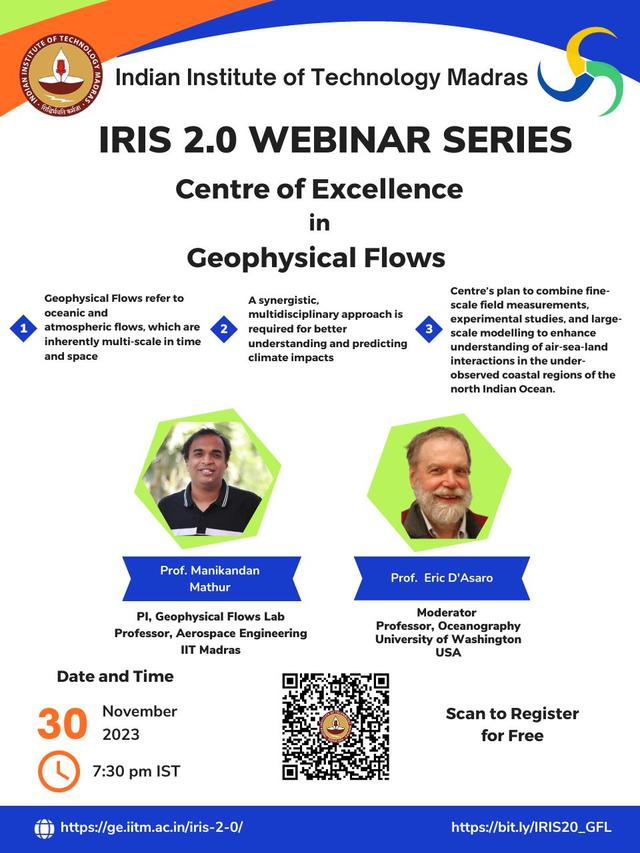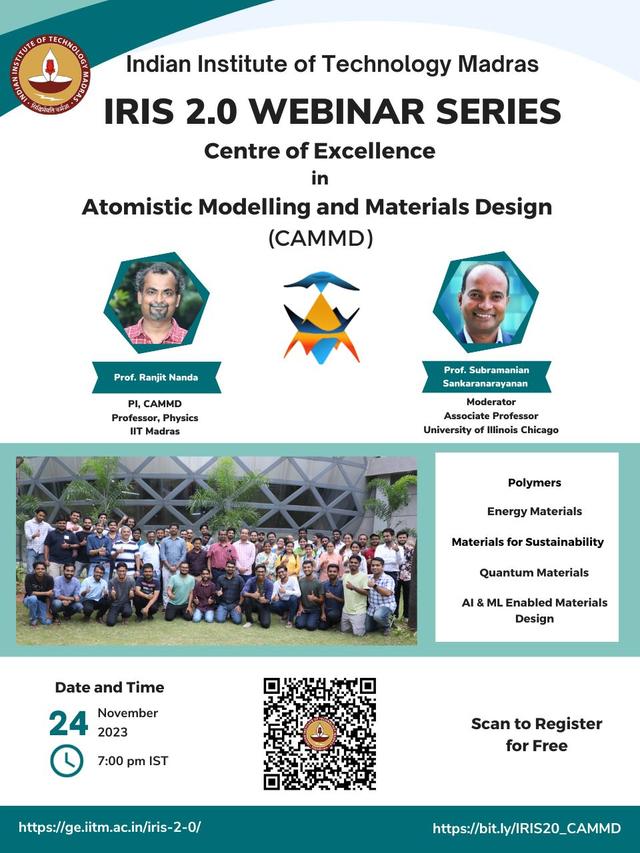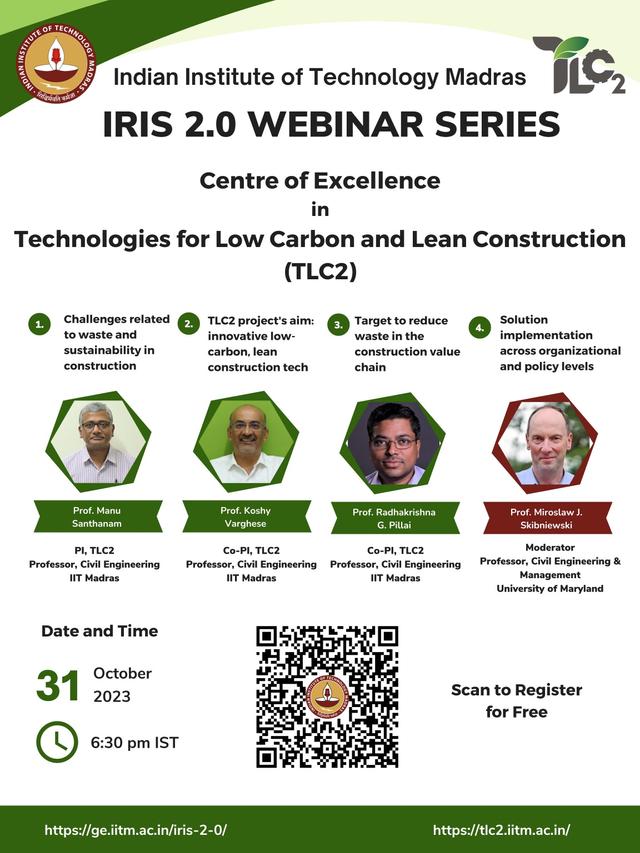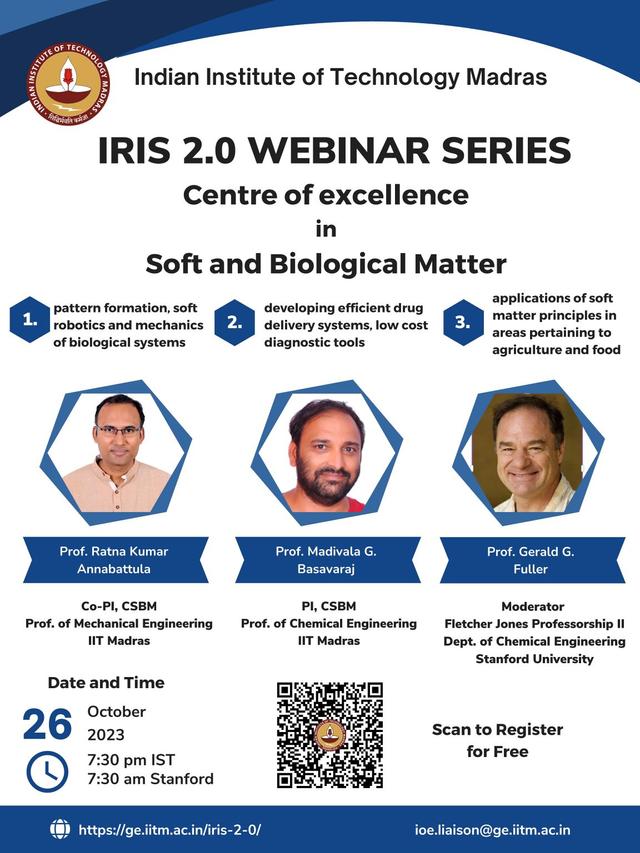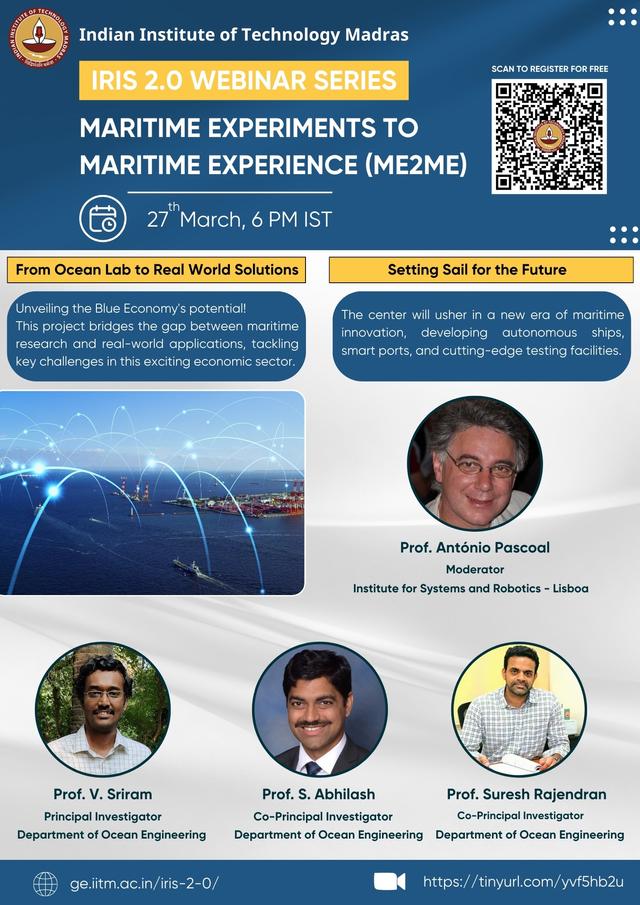
6:00 PM IST
Maritime Experiments to Maritime Experience (ME2ME)
Maritime Experiments to Maritime Experience (ME2ME) is a collaborative initiative at the Department of Ocean Engineering, IIT Madras, synergizing the strengths of three IoE centers of excellence: CMAS (Centre for Marine Autonomous Systems), CFLOR (Center for Large Scale Ocean Research), and SMATE (Centre for SMART Maritime Technology). This project aims to translate knowledge gained from maritime experiments into real-world applications, addressing major challenges in the Blue Economy sector. With a focus on autonomy, digitalization, and ocean analytics, the centre will develop advanced maritime infrastructure, including autonomous vessels, smart port-side infrastructure, and large-scale testing facilities. Through international collaboration and cutting-edge research, ME2ME seeks to elevate IIT Madras' global ranking and establish itself as a leader in Ocean Engineering.
